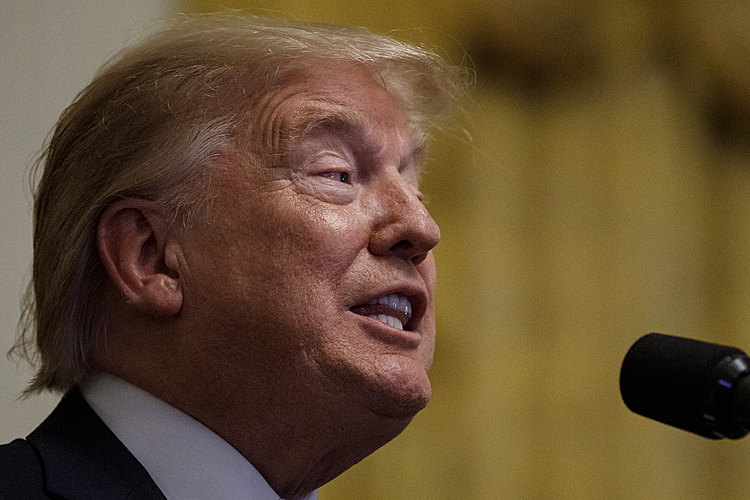Asian shares push higher on stimulus moves, jobs data
Shares advanced Monday in Asia after President Donald Trump issued executive orders to provide tax relief and stopgap unemployment benefits for Americans hit by the fallout from the coronavirus pandemic.
Benchmarks were higher in Sydney, Shanghai and Seoul, while markets were closed in Tokyo for a holiday.
“It has been an unusually risk-friendly start to the Monday proceedings, but there is still a lot of wood to be chopped on the U.S. stimulus deal, while Aug. 15 trade talks loom ominously," Stephen Innes of AxiCorp said in a commentary.
Stock prices fell in Hong Kong after the authorities arrested pro-democracy media tycoon Jimmy Lai on suspicion of collusion with foreign powers.
The Hang Seng index dropped less than 0.1% to 24,526.63.
An aide to Hong Kong media tycoon Jimmy Lai said Lai was arrested under the city’s national security law and posts on Twitter showed him being taken away by police, as dozens of uniformed police searched the headquarters of his newspaper, Apple Daily.
The national security law that came into effect June 30 is widely seen as a means to curb dissent after anti-government protests rocked Hong Kong last year. It has raised questions over whether and to what extent Communist Party leaders in Beijing will respect the “one-party, two-systems" arrangement promised to the former British colony for a half-century after China took control of the semi-autonomous in 1997.
Elsewhere in Asia, South Korea's Kospi jumped 1.6% to 2,388.12 and the S&P/ASX 200 in Australia surged 1.7% to 6,105.20. The Shanghai Composite index advanced 1% to 3,385.80.
Shares also rose in Taiwan, India and Thailand.
China reported its consumer price index rose to 2.7% in July from 2.5% in June as flooding disrupted farming across much of the country. But producer prices and core inflation, which excludes food and energy prices, fell to a ten-year low of 0.5%, reflecting continued weakness amid the pandemic.
Sentiment on Wall Street was lifted Friday by positive U.S. jobs data, with U.S. employers adding nearly 1.8 million jobs last month, about 185,000 more than economists had forecast.
But uncertainty overhangs the markets, with China-U.S. trade talks planned for Friday and the total number of confirmed coronavirus cases surpassing 5 million. Technology stocks have taken a hit as investors fret that China could retaliate for President Donald Trump’s latest escalation against Chinese tech companies.
Trump issued his latest set of executive orders as Republicans and Democrats in Congress reportedly remained far apart late last week on stimulus legislation.
The four orders call for continued payments of up to $400 a week of supplemental federal unemployment benefits for millions of Americans out of work during the outbreak.
A payroll tax deferral would allow employers to defer collecting the employee portion of the payroll tax, including the 6.2% Social Security tax on wages, effective Aug. 1 through the end of the year.
Trump directed the Treasury and Housing and Urban Development departments to find funds to help people struggling to pay their rent. He also extended a moratorium on student loans backed by the federal government, that would have expired on Sept. 30 and that also forgave interest on the deferred payments.
Analysts questioned the impact of the orders, which appear certain to face legal challenges. Democrats called the move a pre-election ploy that would burden cash-strapped states, which may be expected to pick up more of the tab for unemployment benefits.
Trump issued the orders after congressional talks broke down. Democrats initially sought a $3.4 trillion package, but said they lowered their demand to $2 trillion. Republicans had proposed a $1 trillion plan.
Both the White House and congressional Democrats indicated Sunday they wanted to resume negotiations, but no talks were scheduled.
With the Nov. 3 election approaching, the White House is nervously watching signs that the economic recovery is slowing down as the coronavirus surges.
The S&P 500 inched up 0.1% to 3,351.28 to eke out a sixth straight gain on Friday. It is within 1% of its record high set in February.
In other trading Monday, U.S. benchmark crude oil gained 61 cents to $41.83 per barrel. On Friday, it gave up 73 cents to $41.22 per barrel..
Brent crude, the international standard for pricing, added 47 cents to $44.87 per barrel.
The U.S. dollar slipped to 105.76 Japanese yen from 105.92 yen. The euro strengthened to $1.1793 from $1.1789.











